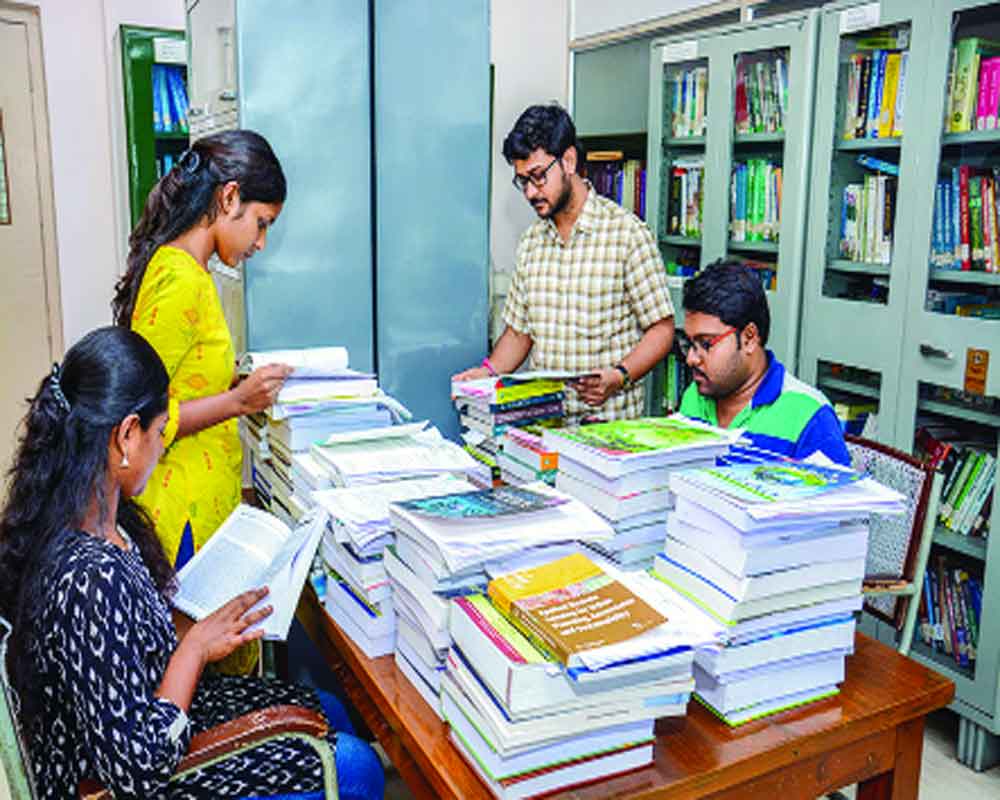While recruiting people from the industry, UGC should ensure that their influence doesn’t dilute the rigorous academic environment on campuses
The recent proposal from the UGC chairman to induct members from the industry as professors and associate professors, without looking at theirqualification,has met with scepticism from the academic community.
Before going into the merits and demerits of this proposal, lets explore the current education scenario in our tate universities and colleges.One of its drawbacks is that even after spending 17 or 20-plus years in education, students lack the necessary skills for employability. A post-graduate student cannot explain the application of his specialization to society. Neither can the teacher. In most colleges, post-graduation classes are conducted like a tuition centre, where capsule notes are distributed.
The culture of teaching by referringtoresearch or review papers from peer-reviewedis rarely followed even though it is the right way to provide up-to-date knowledge in a particular subject. The syllabus of most universities is prepared in a teacher-centric way. The only concern while designing the syllabus is how to maintain the necessary workload so that posts can be protected.The practical syllabus of science subjects is mostly outdated. that there has been no considerable revision during the past 75 years. Advanced topics taught in colleges are taught at school level abroad. In most colleges there is hardly any interaction between various departments. Pasing out of such an environment,how can the graduates get employment? Its no surprise that many science students, even after having M.Sc. and PhD degrees, struggle to get jobs. They lack essential skills needed for employment and dont know how to draft a letter or handle banking operations. Higher education in our country badly needs drastic reforms. But these should start not from our universities alone, but should be initiated in our colleges, from where a larger section of students gets trained. The recent proposal to induct people from the industry into academics is a welcome step but should be dealt with caution. People from industry can motivate students to become entrepreneurs. They have the practical knowledge of how to build an industry from scratch. Most of the successful entrepreneurs in this world are not academically meritorious students. They were either university dropouts or mediocre students. A faculty from industry can help students understand the practical application of topics they learn in the classroom. For example, a pharma industry person can help students learning ethnobotany develop a product from traditional knowledge.
However, the Government should provide a clear guideline for such recruitments. While academics largely follow an open knowledge culture, the industry follows a closed knowledge culture. Industry always keeps its knowledge confidential and doesnt encourage sharing of knowledge. In many industries, the employee is not allowed to carry even a piece of paper from the office, fearing information leakage.
Most industries do not value academic degrees, and they give more emphasis on skill and productivity.
Industries rarely follow ethics or humanitarian values. Their only mantra is success through marketing. But the purpose of education is to provide knowledge and develop culturally enriched, value-driven citizens for the country.
Research is one area where we must tread with caution.Most industries dont support or encourage basic research. They promote research that yields immediate results as products. In many areas of science, this may not be possible. The influence of industry people may ultimately dilute the importance of fundamental research. In the long run, the country cannot survive without primary research.
While recruiting people from the industry, UGC should make sure that their influence doesnt spoil the academic environment on our campuses. We should tap only the positive culture from the industry, like their management skills, their skill in identifying a potential new product etc.They can help a researcher scale-up up their research output.
The new rule may badly affect the prospects of young researchers who toiled the most productive period of their life for research. If there is an option for faculty recruitment from industries, there is no meaning in spending 3 to 8 years for a PhD degree, and most of them will make a career in industry rather than in research. This will ultimately affect the research scenario in the country.
We need to protect the aspirations of our youngsters while engaging people from the industry in academics. Instead of giving permanent positions, UGC can think of engaging with people from industries as visiting or adjunct professors. Industries can also be allowed to start research centres inside the campuses so that students would be benefited, but the key for running the education should always be with the people from the academics.
(The writer is an academic and columnist. The views expressed are personal.)


























